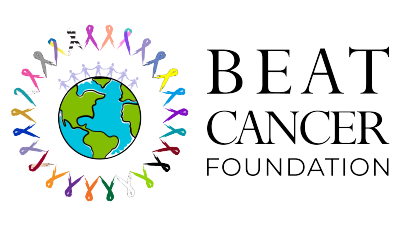
Nascent Iodine

Iodine’s Potential Role in Cancer Prevention and Treatment
Laboratory studies indicate iodine's ability to destroy cancer cells. Its presence in the body also appears to bolster the immune system's detection of abnormal or pre-cancerous cells. Notably, a deficiency in iodine has been linked to the development of pre-cancerous fibrocystic diseases, which can be a precursor to breast cancer. Both prostate and colorectal cancer patients have shown recorded benefits from iodine supplementation. Additionally, radioactive iodine has been employed to detect thyroid cancer.
Balancing Iodine Deficiency and Cancer
Adequate levels of iodine are crucial for human health. An insufficiency can result in fatigue and suboptimal thyroid function. Research has underscored the benefits of iodine supplementation, especially for patients with breast, prostate, and colorectal cancers.
Understanding Iodine's Role
1. Iodine and Human Physiology
(i) The Thyroid's Connection to Iodine
When most people hear about iodine, they immediately think of the thyroid gland. This gland requires iodine for its proper function. The thyroid doesn't use iodine directly but converts it to iodide, which is essential for the production of hormones like thyroxine (T4) and triiodothyronine (T3). An iodine deficiency can lead to hypothyroidism, characterized by symptoms like fatigue, weight gain, and headaches. Before initiating treatment, it's imperative for doctors to check iodine levels. Unfortunately, many opt for synthetic thyroxine supplementation without testing.
Recent data suggests that iodine levels in Americans have plummeted by 50% over the past four decades. There is also evidence linking synthetic thyroxine with an elevated risk of breast cancer.
Goiter, an abnormal enlargement of the thyroid gland, has also been epidemiologically linked to breast cancer.
(ii) Iodine Beyond the Thyroid
Apart from the thyroid, iodine transporters are found throughout the body. Organs such as the salivary glands, stomach, eyes, and brain contain relatively high concentrations of iodine. These transporters are particularly abundant in the placenta, mammary gland, ovaries, and prostate.
2. The Relationship Between Iodine Deficiency and Cancer
Several studies have pointed out the correlation between low iodine levels and the incidence of various cancers. In the context of breast cancer, a deficiency in iodine can result in fibrocystic diseases, increasing the risk for malignancies. Prostate and lung cancers also demonstrate a connection to iodine levels. Additionally, iodine's ability to neutralize harmful agents has implications for colorectal and stomach cancers.
3. Recognizing Iodine Deficiency
Symptoms range from fatigue, headaches, and muscle cramps to cognitive difficulties and skin conditions. It's also associated with more severe disorders, including Hashimoto’s thyroiditis.
4. Natural Iodine Sources
Food items such as sea vegetables, shellfish, fish, strawberries, and potatoes are rich in iodine. However, consumption recommendations vary widely across different health organizations.
5. Supplementing with Iodine
When considering supplements, purity is paramount. Options include sea kelp, Lugol’s solution, and nascent iodine. Nascent Iodine is the most bioavailable biochemically to the body and is recommended to be taken with magnesium and vitamin C.
6. Factors Depleting Iodine Levels
Bromine in pesticides and food, water fluoridation, chlorine, and declining consumption of iodine-rich foods can adversely affect the body's iodine levels.
7. Iodine as an Antioxidant
Iodine possesses powerful antioxidant properties, impacting cellular health and countering harmful agents more effectively than even vitamin C.
8. The Implications of Iodine Deficiency
Deficiencies can lead to severe health issues, including developmental problems in newborns and thyroid-related disorders. A simple test can ascertain iodine levels in the body.
Conclusions
Though the role of iodine in cancer prevention and treatment warrants further research, preliminary findings suggest its potential efficacy. Those diagnosed with cancer might benefit from ensuring they maintain adequate iodine levels. Regular monitoring is essential for those considering iodine supplementation, especially in conjunction with thyroid medications.
“Knowing all your treatment options could be life-saving!”
Location
Sheridan, WyomingTogether, we can beat cancer
Thank you for your interest in the Beat Cancer Foundation. We are here to support you every step of the way in your cancer treatment journey. Please fill out the form below, and our team will be in touch with you shortly. Together, we can beat cancer. (307) 291-0991

